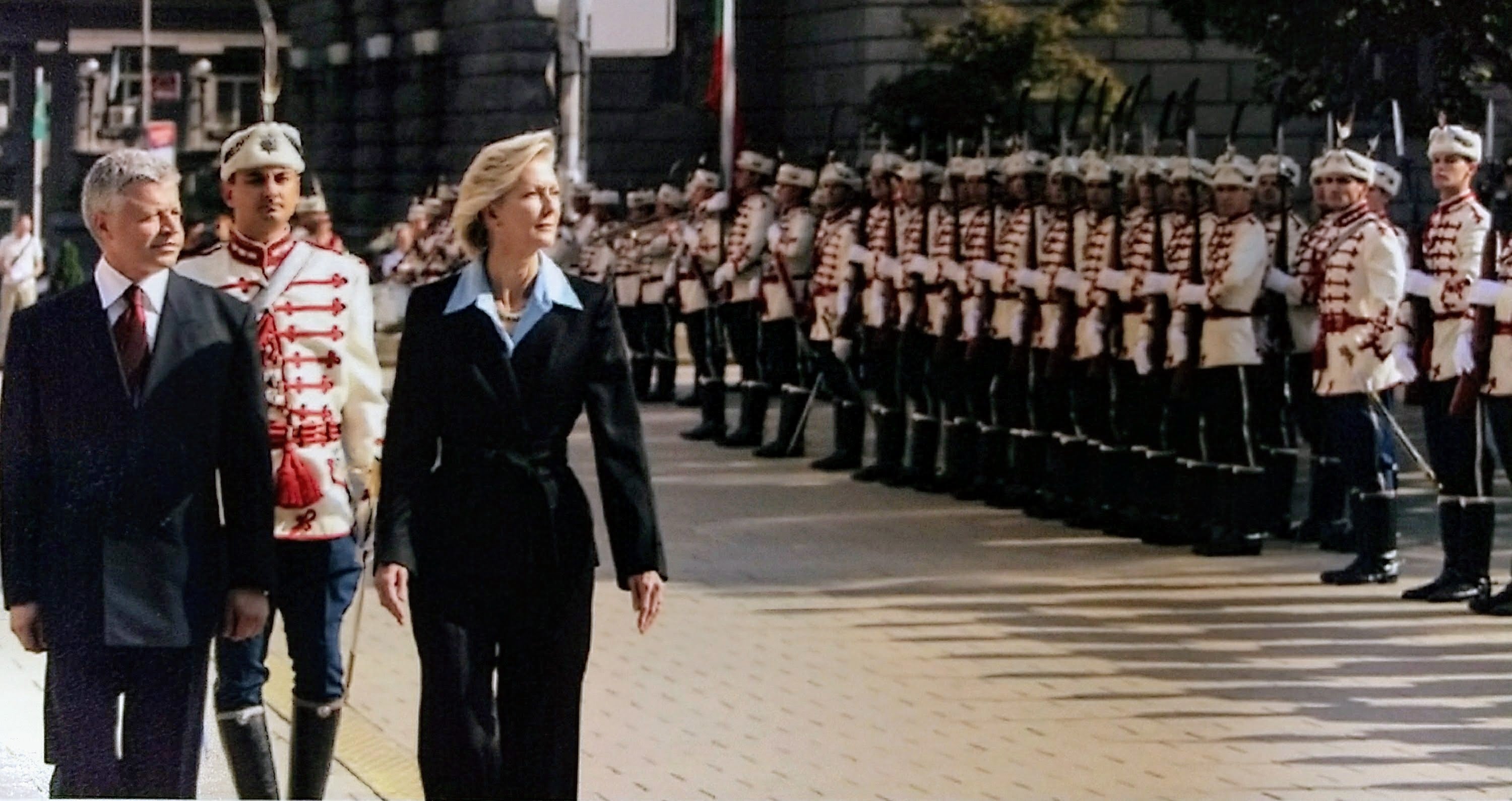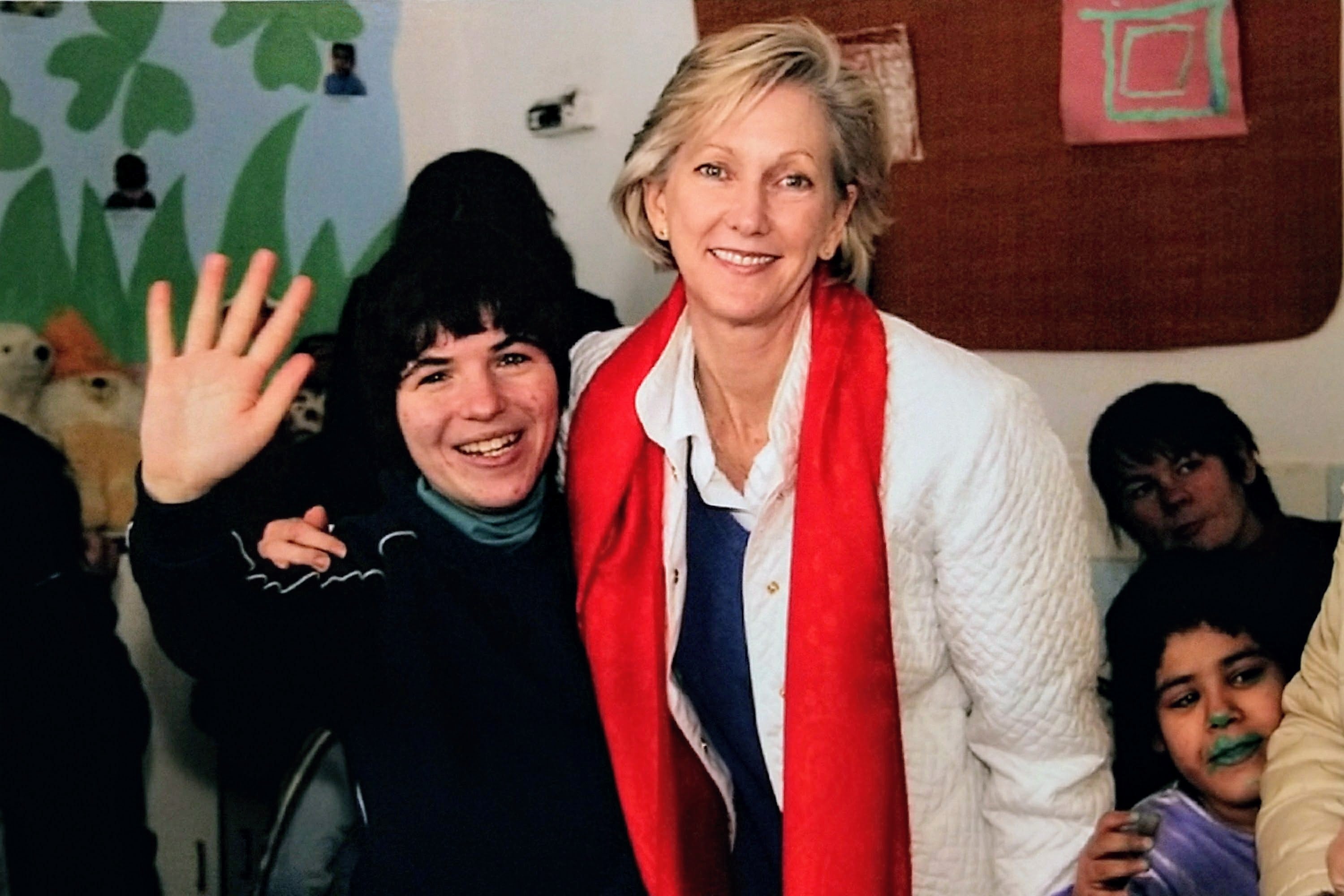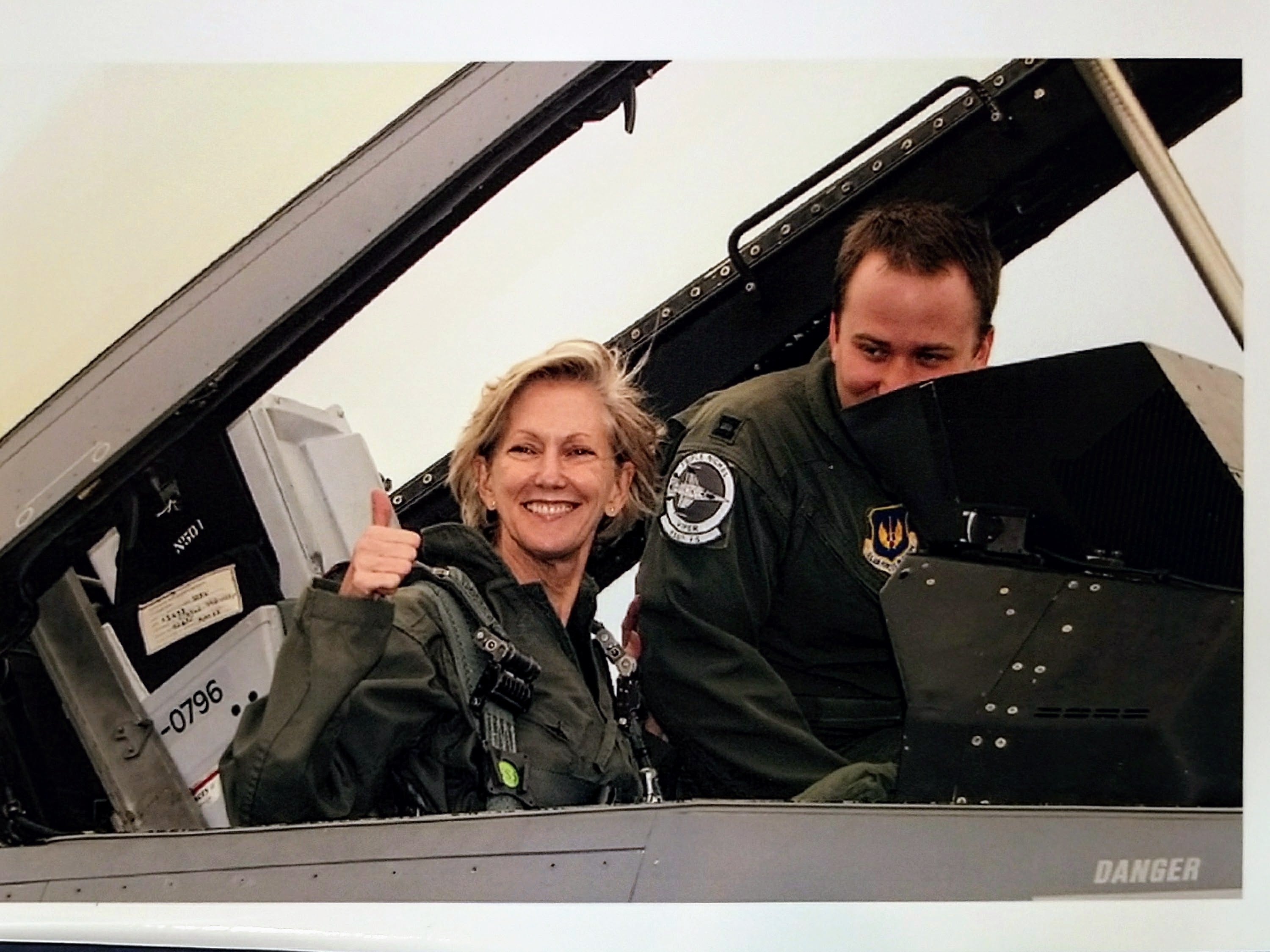
As Georgetown welcomes Ambassador Nancy McEldowney, new director of the MSFS program, to the Hilltop, she may find herself in need of a lunch recommendation, or parking tips. McEldowney needs no introduction, however, to academic institution administration or the world of international relations, as she brings practiced and valuable perspective from her unique career of leadership and service in the U.S. government – particularly in the training and education of international policy professionals.
McEldowney comes to Georgetown most recently from the Foreign Service Institute (FSI), the State Department-administered foreign affairs training provider for the U.S. government. McEldowney served as Director of FSI from 2013-2017, managing the institution’s 1,400 strong-staff as they provided training critical to the functioning of the U.S. government’s foreign policy to 170,000 enrollees. At MSFS, she intends to continue and expand her experience training future leaders on international issues.
“The MSFS program is renowned for producing graduates with deep knowledge, practical experience, and a commitment to principled action in career fields that range across the private sector, nonprofits, and government service,” McEldowney says. “I want to strengthen and build upon that impressive legacy as we look to a future of dramatic global change.”
A Career of Service
McEldowney’s combined interest in education and foreign relations originated during her own graduate education. A student of international politics and the Soviet Union, she was intending to pursue a career in academia, but was swayed to public service by a summer spent interning in the State Department Office of Soviet Affairs.
“I met people of brilliance and conscience grappling with issues of huge consequence,” McEldowney says. “These people were taking decisions that shaped the world and I knew in an instant that I wanted to join them. So I changed my career path from academia to public service, but I never changed my focus on and my commitment to scholarship and education.”
Beyond her interest in education, McEldowney’s experiences further impressed upon her the critical importance of regular learning for diplomatic careers.
“I quickly discovered that a career in diplomacy – with a new job, a new country, new issues, and a new language every few years – made continuous learning absolutely essential.”
“With such radical change underway in global societies, economies, and political systems, a rigorous education with a foundation in critical analysis and an understanding of emerging issues is even more imperative,” she says.

So as her career progressed, McEldowney remained focused on education, while also cultivating other motivators.
“I’ve held many different positions in my career but I’ve always been motivated by an enduring set of goals and beliefs,” she says. “These include a desire to understand and positively shape the international system; a conviction that responsibility to alleviate human suffering rests on the shoulders of those with capacity and compassion; and a determination to find solutions that are equitable and inclusive for the largest possible number of people and countries because to do otherwise means that all will eventually lose.”
Using those benchmarks, McEldowney set out on a career that spanned a variety of facets of government service, including time as Director of European Affairs on the White House National Security Council Staff under President Bill Clinton, a stint as U.S. Ambassador to Bulgaria for President George W. Bush, and two years at the National Defense University (NDU) as President and Senior Vice President, where she directed efforts to expand international outreach and cooperation in NDU’s master’s degree programs—portending things to come.
Lessons in Education
From her time at NDU and FSI, McEldowney had critical experiences that she has carried with her since. In both positions, she had to contend with the general challenge of adjusting to new, demanding positions while also tackling the significant specific goals she was given.
“As a civilian and a woman leading a DoD institution traditionally headed up by military officers, I had to reach across both institutional and cultural boundaries to ensure that the students, staff, faculty, and stakeholders of the university were engaged, informed, and properly served.”
“We were asked by the Chairman of the Joint Chiefs and the Secretary of Defense to expand our outreach to international partners. The result was an extensive program of joint research, faculty exchanges, and structured conferences with China, Pakistan, and Vietnam,” she says. “Each year NDU sponsors over 150 international fellows who participate along with the 500 American students, both military and civilian, in the year-long MS degree program.”
At FSI, challenges centered around growth and development.

“One of my first priorities was to drive stakeholder support and raise funding for expanded facilities. With an intensive team effort, we succeeded in opening a $50 million annex and secured an additional $100 million for the construction of a new building,” McEldowney explains. “We also determined that continued excellence required a greater emphasis on scholarship and professional development of faculty, as well as extensive innovation in both teaching methodology and course delivery with a more student centric focus.”
Throughout these efforts, McEldowney experienced the import of comprehensive input and cooperation.
“Each new step was proposed by those closest to the work itself so that expertise and autonomy were driving factors,” she says. “Overwhelming support for this process from students, staff, and faculty is a vital indicator that it is moving in the right direction and has the essential foundation to continue in the years ahead.”
McEldowney sees a certain attitude as the most compelling component of successful leadership at institutions like NDU and FSI.
“When outside observers comment on a successful leader, they often focus on policy accomplishments and programmatic advancements. But the reality is that those tangible things can only occur because the leader has done the intangible by embracing and inspiring team members, crafting a powerful vision, building trust, and removing obstacles, so that people feel both supported and challenged to strive for more than they previously thought possible,” she says. “Making that process happen – guiding individuals to higher levels of performance and facilitating greater degrees of cohesion within and among teams – is enormously gratifying.”
On the Hilltop
Bringing that experience to Georgetown, McEldowney looks forward first and foremost to getting to know MSFS.
“The very first thing I want to do is simply to listen. The depth of expertise and breadth of experience possessed by the faculty and staff are invaluable resources. I have much to learn from them and am eager to hear their views of the program and its future,” she says. “I am particularly interested to learn what we are doing to expand diversity, both in our student body and in our course content. I am also eager to explore what more we might be able to do to help our students, both academically and financially.”
The role of universities like Georgetown, as creators of new knowledge leading to better solutions, is more important than ever before.
McEldowney emphasized a few critical traits she hopes to instill in MSFS students as they prepare to navigate an uncertain future.
“First is agility: the capacity to respond both intellectually and operationally to the unprecedented in creative ways,” she says. “Seeking to understand phenomena from multiple perspectives, whether that is with different analytical frameworks or through the lens of completely different disciplines, will allow for greater insight into the true complexity of the challenges likely to arise.”
“Second is resilience. Bouncing back after inevitable setbacks, sustaining high levels of performance, and maintaining a positive outlook in difficult circumstances will help foster success in conditions of near perpetual flux.”
“Third and perhaps most important is the will to act. The greatest accomplishments will accrue to those with an inherent drive toward action, those prepared to experiment and take smart risks. This will require grappling with some agonizing moral dilemmas and deciding between less than optimal choices.”

McEldowney looks forward to setting goals that keep MSFS abreast of a changing world.
“As we look ahead, we’ll want to strengthen our foundation and enduring traditions while also ensuring that we are addressing emerging issues across a number of different fields to ensure that our students graduate with the knowledge and skillsets they will need to navigate successfully through a world of continuing dramatic change,” she says.
While this foundation of academic rigor, including specific concentrations, is important, McEldowney also highlighted the development of a flexible, adaptive attitude.
“At the same time that we continue and strengthen the enduring foundation, we must also constantly assess evolving circumstances and the new capacities required to respond and excel in the face of those changes,” she says.
In addition to her plans for leading the program, McEldowney notes that joining the MSFS team has personal significance as well.
“The values that lie at the core of this university are profoundly important to me,” she says. “Ethical service toward a more just world, exacting scholarship in the search for truth, and a commitment to inclusion and empowerment for all – these are touchstones that will guide this institution, its people, and its programs through the toughest of challenges. I am privileged to be a part of this great endeavor.”
Despite the challenges that will certainly come, as McEldowney looks ahead, a sense of excitement prevails.
“None of this will be easy,” McEldowney says of the work ahead of her and the values she hopes to instill, “but the nature of the world we are likely to face makes it unavoidable. We need people of courage and conviction, people determined to make a positive difference no matter how difficult the challenge. Producing that kind of global leader, ready to take on the world of tomorrow, is why MSFS exists and why I am so excited to be a part of it.”